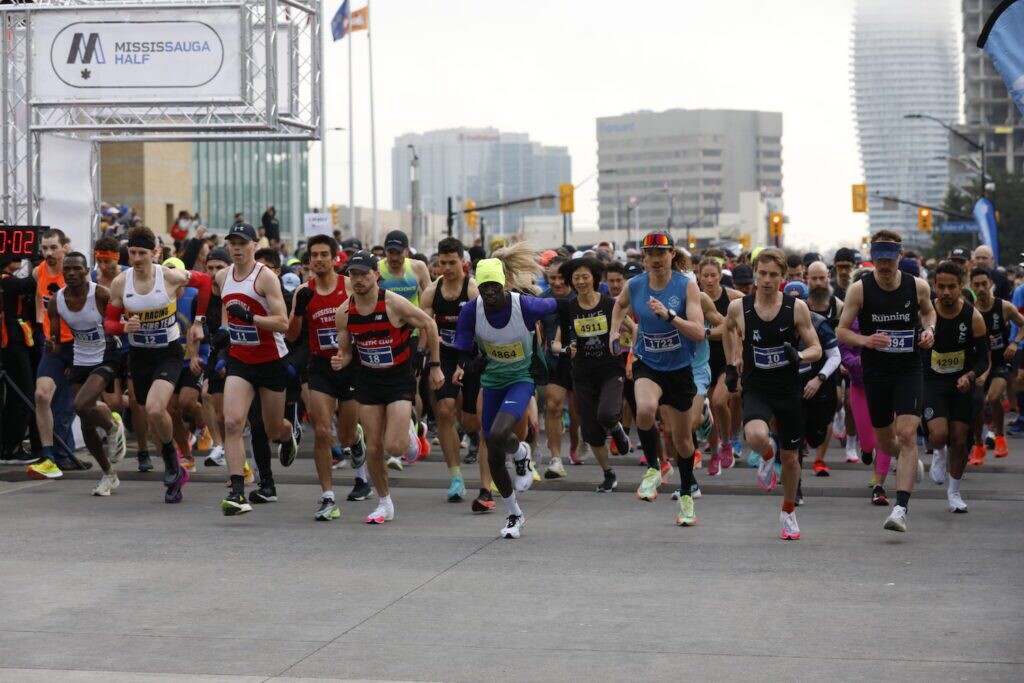Running News Daily
Running News Daily is edited by Bob Anderson. Send your news items to bob@mybestruns.com Advertising opportunities available. Train the Kenyan Way at KATA Kenya and Portugal owned and operated by Bob Anderson. Be sure to catch our movie A Long Run the movie KATA Running Camps and KATA Potato Farms - 31 now open in Kenya! https://kata.ke/
Index to Daily Posts · Sign Up For Updates · Run The World Feed
What does your half-marathon time say about your marathon potential?
Running your first marathon can bring a lot of uncertainty, but don’t let your potential finishing time be one of them.
Completing your first half-marathon is a big accomplishment, and for many, it’s a stepping stone toward the marathon. If you’re looking to tackle 42.2 km (26.2 miles) next year, your half-marathon time could offer valuable insight into your marathon potential, helping you set realistic goals for training and race day.
While both races require endurance (and training), the marathon demands a significantly higher level of commitment and preparation. Marathon training can take anywhere from 12 to 16 weeks for experienced runners, and those starting from scratch might train for six months to build the necessary strength and stamina. The rigorous training is essential since, unlike a half-marathon, attempting to complete a marathon with little to no preparation will often lead to injury.

Estimating your marathon potential
One common formula for projecting marathon performance from a half-marathon result is straightforward: double your half-marathon time and add 10-15 minutes. The additional time accounts for the slower pace and increased fatigue that naturally come with the full marathon distance. Here’s an example of how the calculation works:

If you finished a half-marathon in 1:45:00: Doubling that time gives you 3:30:00; adding 15 minutes gives a marathon goal of 3:45:00
Of course, it’s not guaranteed; individual factors such as pacing, training, nutrition and race-day conditions may all affect this estimate. For instance, if you completed your half-marathon with a negative split (running the second half faster than the first), you may have more potential for a faster marathon time, as your time suggests you managed your energy well and had more to give at the end. In that case, try adding only 10 minutes to your doubled half-marathon time.
No matter what time your half-marathon suggests you can run, achieving your marathon goal will still require a lot of dedicated training. Many first-time marathoners should nearly double their weekly training volume from the half-marathon. This increase in mileage helps build the physical and mental endurance required for 42.2 km, reducing the risk of hitting the dreaded “wall” in the final 10K.
A well-rounded marathon training plan typically includes long runs to build endurance, speedwork to improve pace and efficiency, and recovery days (i.e., easy runs and days off) to allow for muscle repair. Staying consistent with these elements will best prepare you for the challenge ahead.
Setting a realistic goal
While it’s tempting and easy to set an ambitious marathon goal based on your recent half-marathon time, remember that the main objective for your first marathon should be to finish strong and injury-free. Aim for a time that aligns with your training progress, and don’t skip rest or recovery days—overdoing it can also lead to injury (or a disappointing finishing time). With a realistic goal and the right preparation, your recent half-marathon achievement can start paving the way for marathon success.
by Marley Dickinson
Login to leave a comment




